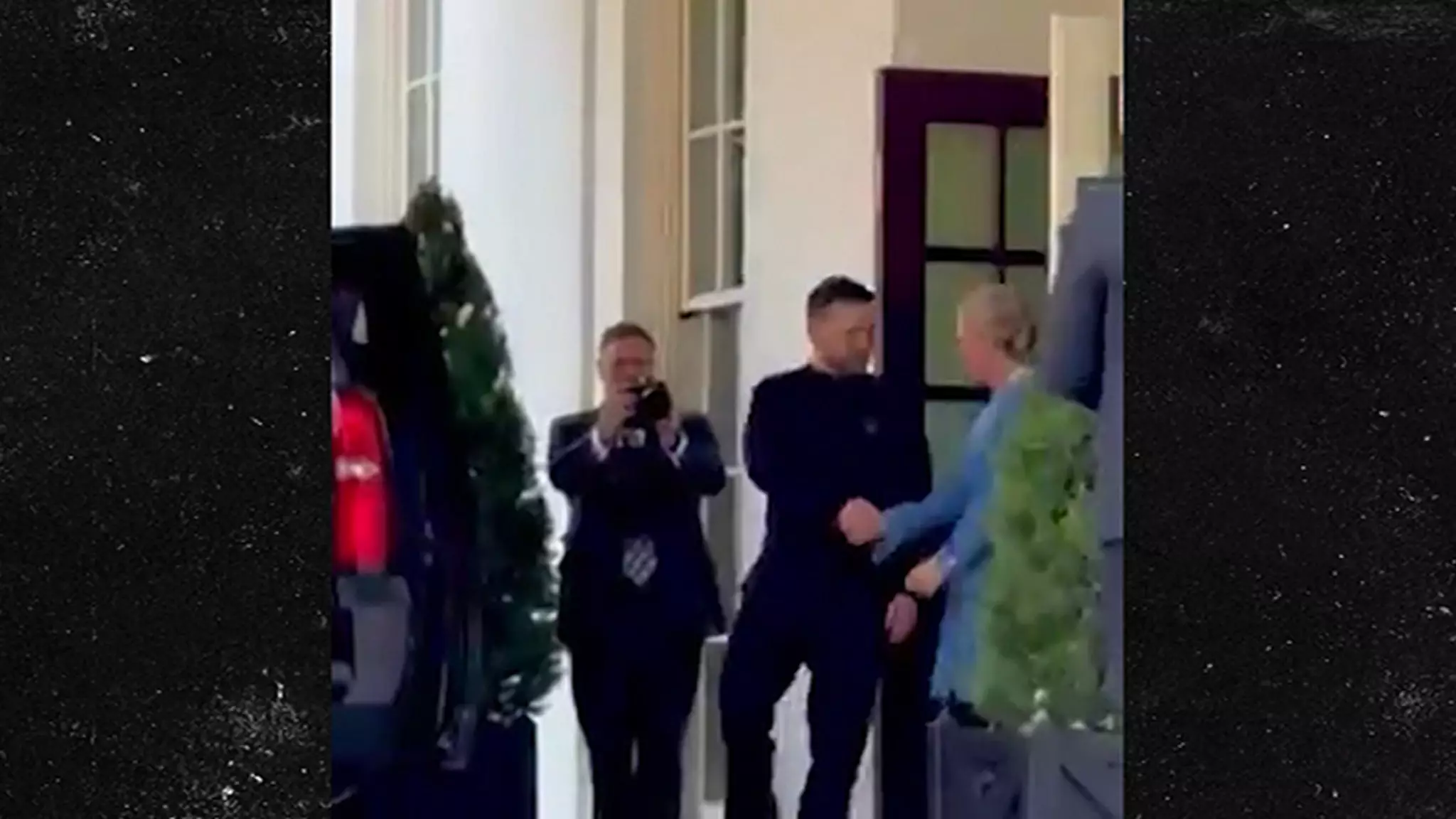The diplomatic landscape took a sharp turn following a heated confrontation between former President Donald Trump and Ukrainian President Volodymyr Zelensky in the Oval Office. According to reports from various sources, the meeting descended into chaos, leading to Trump ejecting Zelensky from the premises. This incident not only highlighted the volatile nature of diplomatic interactions but also underscored the significant strains in Ukraine-U.S. relations amidst an ongoing war.
The atmosphere turned tense as Trump and Zelensky clashed publicly during their discussions, which had been intended to explore cooperation over Ukraine’s rare earth minerals. Rather than a constructive dialogue, their exchange quickly escalated into a shouting match that aired live on international television. Such a display raises concerns over the impact of personal demeanor in diplomacy; both leaders were reportedly frustrated, leading to Trump’s sense of disrespect, especially in light of Zelensky’s perceived dismissive body language.
The meeting’s disastrous evolution has not escaped media scrutiny, particularly the reporting by FOX News journalist Jacqui Heinrich, who relayed Trump’s feelings of being disrespected due to Zelensky’s “shrugging and eye-rolling.” This characterization may reflect not only the personal dynamics of the two leaders but also encapsulates broader international perceptions of respect and gratitude in diplomatic exchanges—elements that are often more critical than they appear.
Adding to the fallout, Trump took to his social media platform, Truth Social, to declare that Zelensky was “not ready for peace,” insisting that Zelensky should only return to the White House when he is prepared to negotiate constructively. This statement emphasizes Trump’s combative political style and suggests a significant disconnect between the two leaders’ visions for resolving the ongoing war effort.
Zelensky, in his response, took a more measured approach, posting a message on X to express gratitude for American support from Biden, Congress, and the American public. This contrast in messaging further illustrates the divergent strategies adopted by the two leaders. While Trump seems to thrive on confrontation, Zelensky aims for collaboration and appreciation, which could resonate more favorably with the American public.
The timing of this incident, occurring just as the world marks the three-year anniversary of Russia’s invasion of Ukraine, adds layers of complexity to the narrative. Trump recently labeled Zelensky a “dictator” and criticized Ukraine’s role in the war, framing the situation in a way that may align with his political base but distorts crucial historical context.
The cancellation of a planned lunch following the explosive meeting reflects not just personal tension but a broader potential crisis in U.S.-Ukraine relations. As Trump navigates his political landscape, the implications for Ukraine, dependent on American support for its ongoing conflict, cannot be overlooked. A rift at this high a level can have cascading effects not only politically but also on ground realities in Ukraine as it battles for sovereignty against a backdrop of aggressive Russian actions.
As the situation continues to unfold, future interactions between the two leaders will likely be closely monitored, both for their immediate diplomatic repercussions and their long-term impact on the stability of international relations in Eastern Europe. The incident serves as a reminder of the fragility of diplomacy and the vital importance of dialogue underpinned by mutual respect.

Leave a Reply